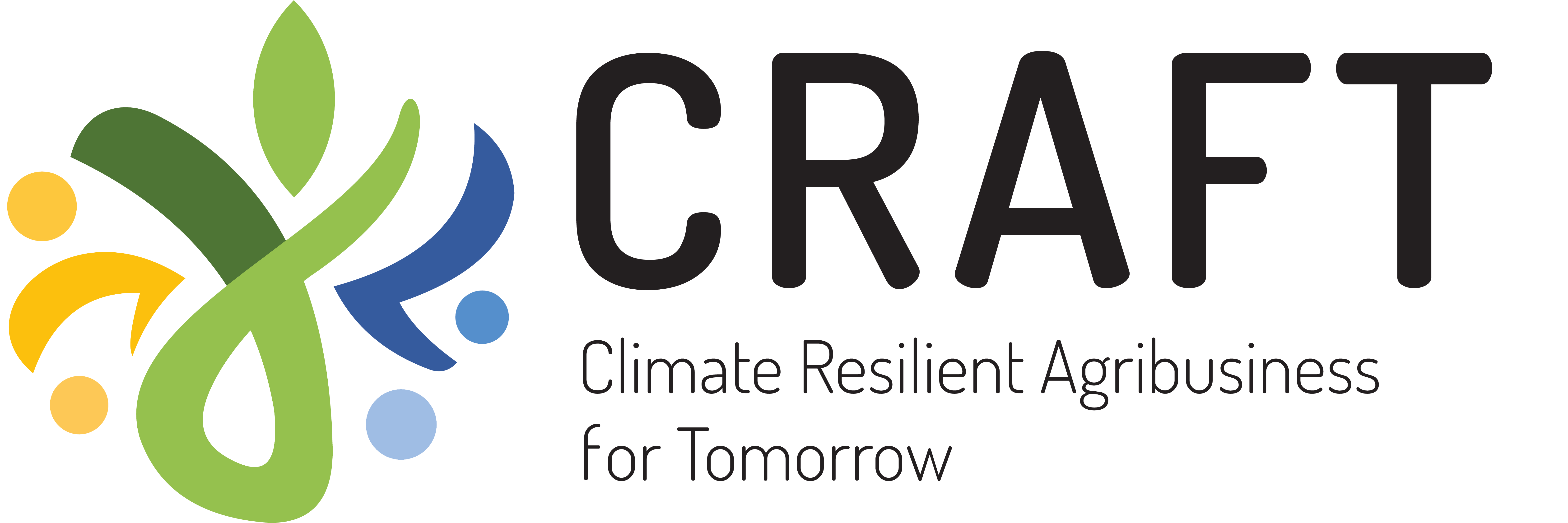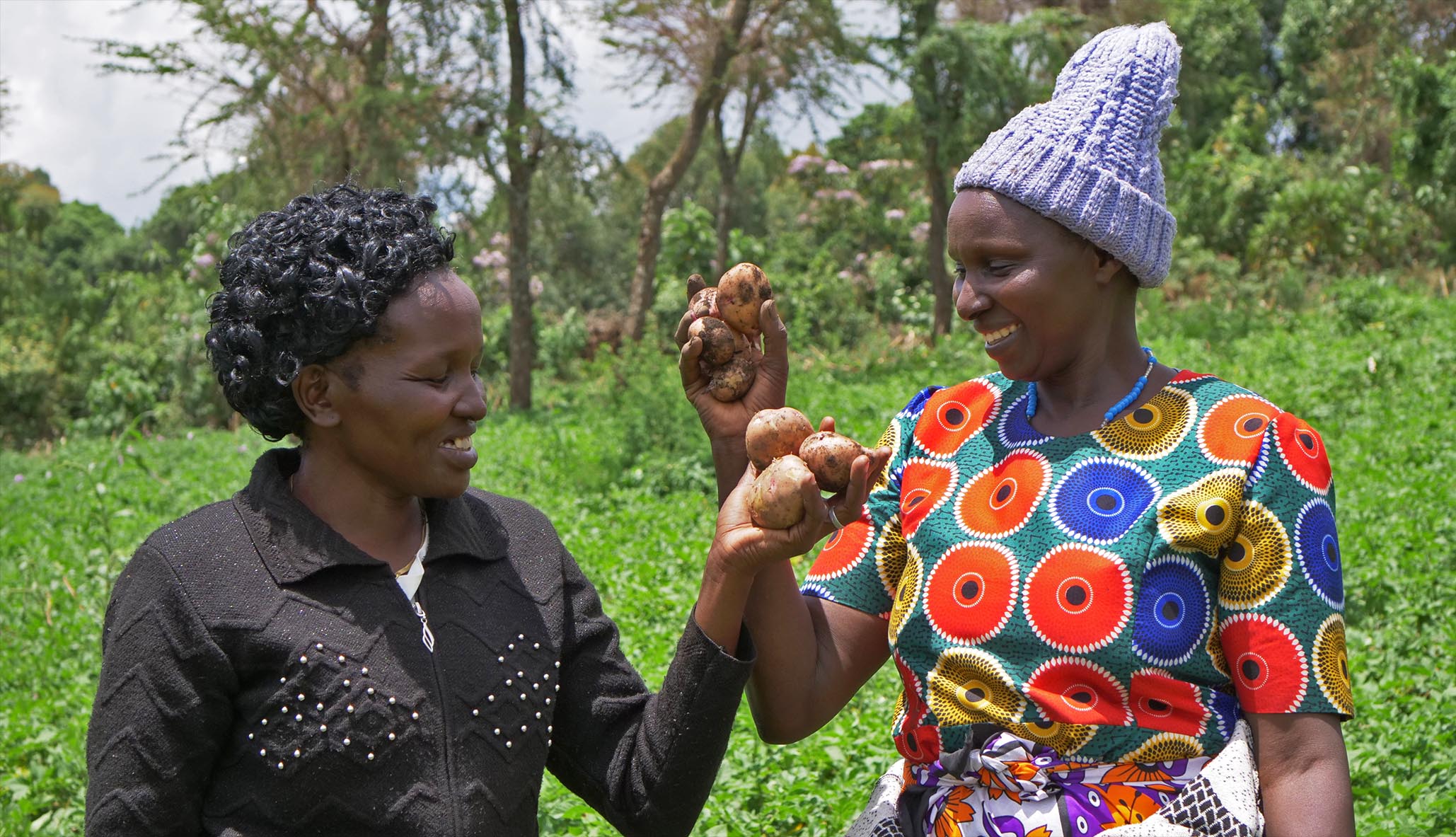In 2021, CRAFT partnered with the ISOWELU cooperative to promote climate-smart agricultural practices and technologies among smallholder farmers. The cooperative has more than 400 active members (smallholder farmers). The project facilitated training programs for farmers through the Farmer Field School (FFS) approach, equipping them with knowledge of climate-smart practices and technologies. Farmers learned various practices, including farm preparation, and the use of improved seeds, fertilizers, and agrochemicals, which have been successfully adopted by most farmers now applying them to their farms.
Smallholder farmers have undergone training on climate-smart agricultural practices and technology. However, despite this, they face challenges in adopting these practices on their farms due to a lack of capital to invest in potato farming. This includes using quality improved seeds, applying fertilizers, pest management, and other practices. The unpredictable seasons have made it difficult for farmers to rely on the crop calendar. Additionally, they face difficulties in accessing inputs, particularly seed potatoes, which often arrive late. Shortages in the supply of improved seeds and higher prices for fertilizers are some of the challenges that link to the major setback of higher costs in investing in climate-smart agriculture interventions.
Accessing loans from financial institutions is a challenge for many farmers. This is due to various reasons such as the lack of collateral, risks associated with agri-businesses, and uncertainties that threaten companies lending money to smallholder farmers. Additionally, poor loan follow-up models from private companies hinder the facilitation of agri-input loans. The unreliability of farming businesses to yield expected results also contributes to the problem.
In 2021, Isowelu obtained an agricultural input loan of €221,330 from a bank in Tanzania. The cooperative was able to secure this credit by leveraging the grant received from CRAFT. With the loan, 110 farmers were able to access improved seeds, fertilisers, and pesticides. Following its successful repayment in 2022, the bank increased the loan amount to €368,883. Isowelu then provided input loans to 218 smallholder farmers, distributing 235 tons of improved seeds and other inputs at an interest rate of 9% per season/year.
The cooperative also purchased a tractor that has been used by members for farm preparation and harvesting. This has helped farmers ensure proper land preparation and planting of potatoes. Furthermore, farmers no longer experience post-harvest losses after using a harvester purchased from the loan. This has increased the quality of potatoes, enabling them to sell at higher prices and improve their income and livelihood. To date, ISOWELU have increased the internal capital of the cooperative, providing services to smallholder farmers such as input loans for other crops like maize. The loan has helped reduce production costs, as Isowelu can access inputs easily and at a lower price by purchasing in bulk and supplying to their farmers. As a result, Isowelu reached a higher number of smallholder farmers, delivering quality services and ensuring the application of climate-smart practices and technologies.
Farmers under Isowelu managed to increase their production from below 4 tons to an average of 8 tons per acre due to the inputs received and technical support in their farming. This has also impacted other value chains such as maize and avocado. Farmers have increased their income, acquired/owned land, expanded their farming areas, built houses, paid school fees for children, participated in decision-making at a household level, accessed healthcare, increased savings, and enhanced household food security.
Farmers are now aware of climate change and risks due to the training they received from CRAFT and weather information services, enabling them to make informed decisions in their farming practices, such as when to prepare farms, plant, and apply fertilizers and pesticides. This has minimised losses and ensured higher production.
To sustain all these achievements, Isowelu AMCOs have initiated discussions with the local government to rent 300 acres of land to establish drip irrigation as part of the application of climate-smart technology. 50 acres will be used to produce seeds, and the remaining 250 acres will be distributed to farmers. This plan will ensure seed availability, addressing a significant challenge for potato farmers, while also mitigating climate risks such as drought and unreliable rains. Irrigation farming will increase farmers' income and improve their livelihoods by allowing crop rotation in more than one season and avoiding dependence on the rainy season, which limits the production of potatoes and other crops.
By Sophia Cyril Kessy










